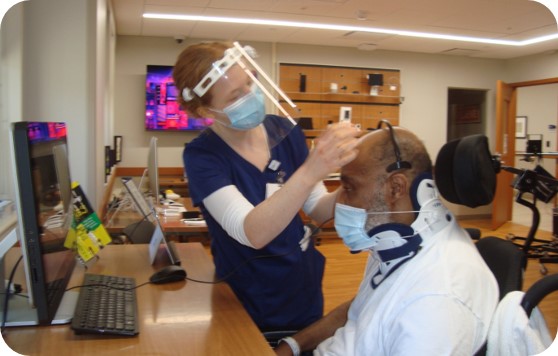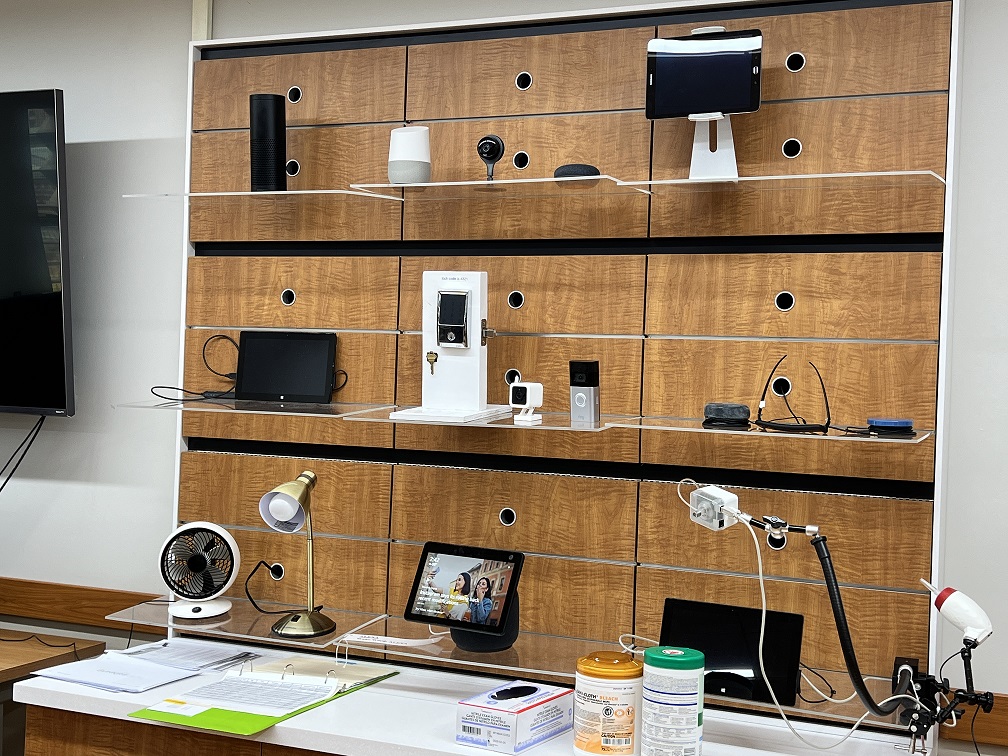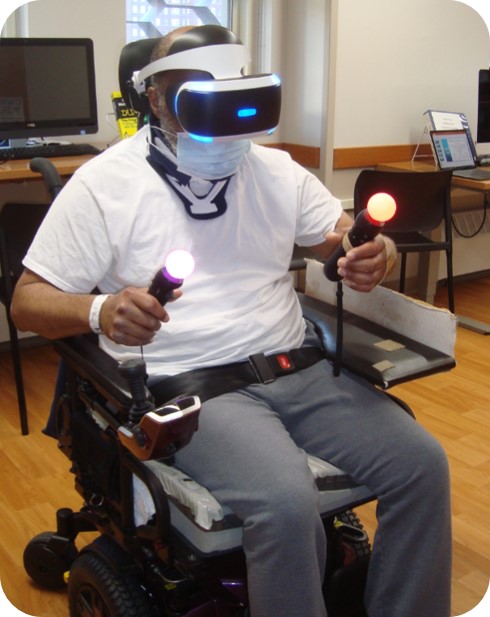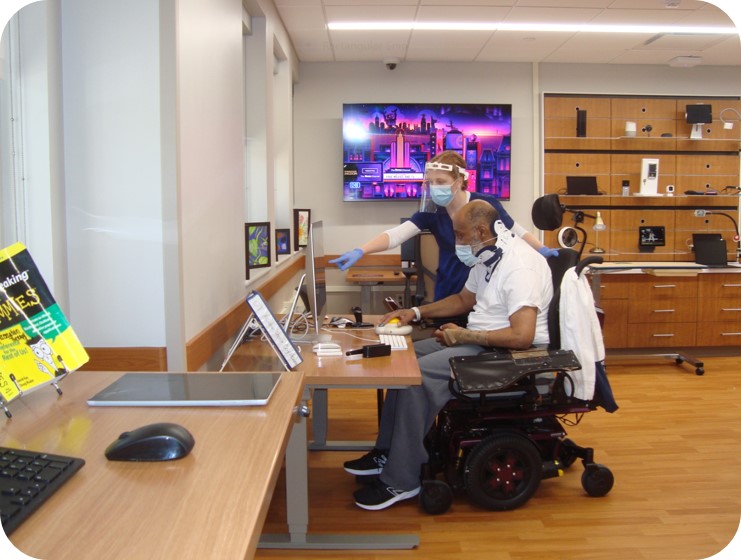 The Buddy Marshall Assistive Technology (AT) Center opened at Magee in the spring of 2021 when the renovations of the hospital’s fifth floor were completed. The former AT Center had been redesigned, expanded and renamed, with a mission to introduce, educate and inspire patients through assistive technology.
The Buddy Marshall Assistive Technology (AT) Center opened at Magee in the spring of 2021 when the renovations of the hospital’s fifth floor were completed. The former AT Center had been redesigned, expanded and renamed, with a mission to introduce, educate and inspire patients through assistive technology.
“Assistive technology can be as simple as voice recognition software and as complex as alternative mouse control systems for computers,” said Natalie Pondok, Lead Therapist for the Assistive Technology Center. Ultimately, assistive technology allows patients to accomplish everyday tasks that most people take for granted, such as turning on the lights or using a computer.
The AT Center is the result of a fundraising campaign spearheaded by a former patient, Buddy Marshall. Buddy is a former Navy fighter pilot and TOPGUN instructor who was paralyzed in a car crash. He uses about 20 pieces of assistive technology to function each day.
“From the moment I wake up in the morning until I fall asleep at night, I rely on assistive technology to live an independent and productive life,” said Buddy.
How Does the Assistive Technology Center Work?
The AT Center houses an array of technology including smart TVs and speakers, iPads, tablets, environmental control devices, gaming devices and virtual reality equipment. Patients can utilities two different mouse control system. One is guided by wearing special glasses. The other allows a user to navigate a mouse using their mouth. The AT center also has a variety of desk heights to accommodate different wheelchair sizes.
 Occupational and recreational therapists introduce patients to the center, starting with a conversation about their goals, to figure out what kind of technology might work best for their needs. “We also let patients take devices back to their room so they can have time to practice using them,” said Natalie, who was Buddy’s occupational therapist during his inpatient stay at Magee.
Occupational and recreational therapists introduce patients to the center, starting with a conversation about their goals, to figure out what kind of technology might work best for their needs. “We also let patients take devices back to their room so they can have time to practice using them,” said Natalie, who was Buddy’s occupational therapist during his inpatient stay at Magee.
The AT Center allows patients to explore their options for assistive technology without spending money on devices that may not work for them. In addition, donor funding has allowed the AT Center to provide patients with devices they would not be able to afford on their own.
How Has the Center Helped Patients Adapt to Life with Physical Limitations?
For patients whose lives have been turned upside down, the AT Center helps patients realize what’s possible after a traumatic injury.
“After a traumatic life-changing injury, many of the day-to-day tasks we all take for granted can suddenly seem like impossible challenges to overcome,” said Magee Occupational Therapist, Cassie Damiani. “Empowering patients with technology can help these tasks become not only possible but quite achievable.”
 “We recently helped a patient with tetraplegia with devices that would help her complete school, including a laptop system with voice dictation and a specialized mouse,” added Natalie. “Assistive technology and support from Magee enabled her to complete her GED, and she’s now planning to attend community college—her outlook on life has changed for the better.”
“We recently helped a patient with tetraplegia with devices that would help her complete school, including a laptop system with voice dictation and a specialized mouse,” added Natalie. “Assistive technology and support from Magee enabled her to complete her GED, and she’s now planning to attend community college—her outlook on life has changed for the better.”
Assistive technology also helps people with physical disabilities stay safe and keep control of their environment at home, whether it’s through the use of video doorbells and Wi-Fi-enabled locks or voice-activated lightbulbs and plugs.
Buddy and his family wanted the AT Center to empower patients with similar life-altering injuries to use technology to reclaim their independence. “We’re doing our best to bring Buddy’s vision to life,” said Natalie.





